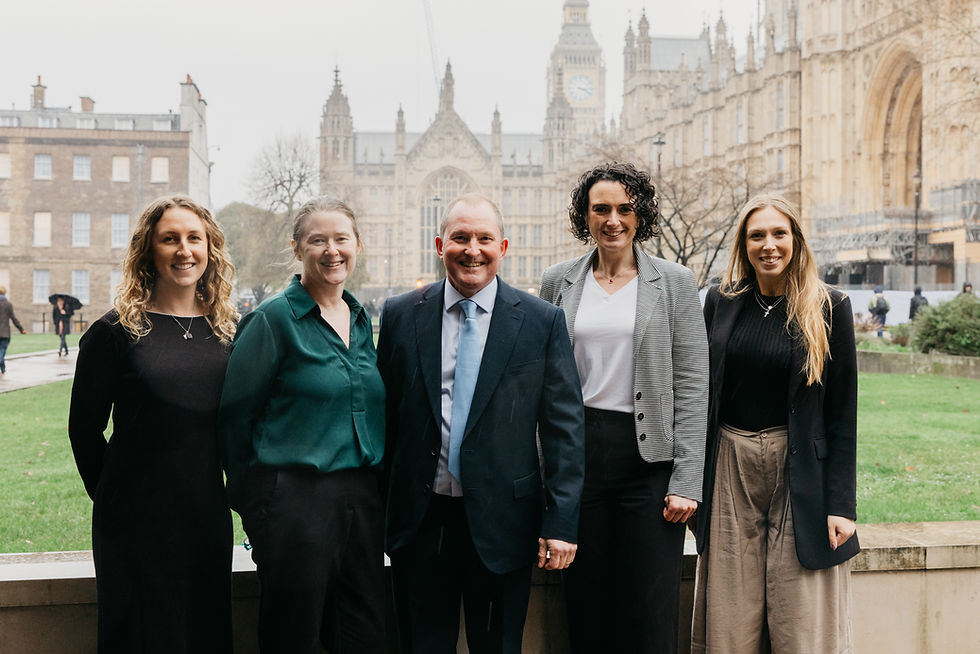- Dec 4, 2023
- 3 min read

The pay inflation that the UK’s workforce has experienced over the last year may have peaked, with economists predicting a stagnant picture for economic growth in 2024. However, staff confidence remains high amid the growing skills crisis. That’s according to the latest Robert Half Jobs Confidence Index (JCI) – an economic confidence tracker produced in partnership with the Centre for Economics and Business Research (Cebr).
Key Findings:
Unusually high worker confidence at odds with the economic uncertainty.
58.4% of employees feel confident about their job looking ahead to the next six months.
Nearly half (47.4%) of workers feel confident about their future career prospects and ability to progress in their career over the coming five years. A strong uptick on the 41.9% from earlier in the year.
High job security and progression confidence exacerbate the implications of skills shortages, as businesses struggle to attract and retain top talent.
47% of employers plan to increase permanent headcount in 2024, yet 75% are concerned about their ability to find and hold onto the right talent.
The latest iteration of the report reveals that more than half (58.4%) of workers feel confident in their job security for the next six months amidst low unemployment, high vacancies and nominal wage growth outpacing inflation. This is a long-standing trend as employees see skills shortages as a reason to feel secure in their jobs, with the JCI’s job security confidence pillar the strongest positive driver for the Index overall score for eight consecutive quarters.
Although this optimism is at odds with the UK’s economic slowdown, the overall picture of confidence remaining strong is in line with Cebr projections for the labour market over the next six months. Unemployment is expected to tick up slightly as high interest rates continue to push down on consumer and business demand, feeding through to employment, yet the labour market will remain tight by historical standards. Given this picture, the 5.5% increase in job search confidence to 47.4% in Q3 2023 is surprising and may exacerbate the labour challenges for firms in the New Year if workers are highly confident about their ability to progress.
In line with the JCI, Robert Half’s 2024 Salary Guide also reveals that while 69% of businesses feel confident in their growth prospects for 2024 and 47% plan to increase permanent headcount next year, a staggering 75% are already concerned about their ability to attract and retain skilled talent.
As Matt Weston, Senior Managing Director UK & Ireland, at Robert Half, explained, this scenario could hinder business growth and stability in 2024: “We’re starting to see signs that pay inflation has peaked, although the good news for workers is wage growth is expected to remain above inflation in the coming months. Nevertheless, while the current economic uncertainty is a top concern for businesses, the workforce isn’t showing the signs of diminishing confidence as we would usually see at this time. The health of the labour market and that of the wider economy have often been linked, yet at present they are less synced than anticipated."
“Today’s labour market snapshot is the culmination of factors from the last few years, including Brexit, the Great Resignation and the pandemic. Things have changed and access to the skilled talent businesses need to remain competitive is becoming ever more challenging."
"Increased post-pandemic economic inactivity, innovation outpacing traditional learning routes and limited social mobility have the potential to further weaken the labour market’s ability to match jobs with skilled workers.
“Our research shows job and business growth confidence are on the rise, yet the widespread skills shortages and economic inactivity will take much longer to tackle. Employers are less likely to be in the driving seat in 2024 and being agile with their talent strategies and workforce models will be key.”






